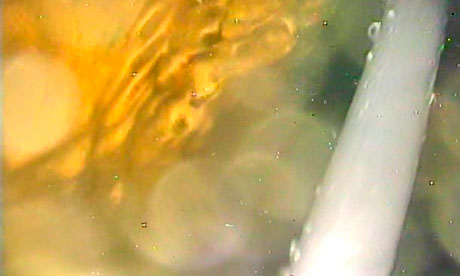 The history of energy exploration, mining, and delivery is best understood in a range from benevolent exploitation to worker and public oppression. A company comes into an area, leases land in rural and agricultural areas for mineral rights, increases employment, usually in a depressed economy, strips the land of its resources, creates health problems for its workers and those in the immediate area, and then leaves.
The history of energy exploration, mining, and delivery is best understood in a range from benevolent exploitation to worker and public oppression. A company comes into an area, leases land in rural and agricultural areas for mineral rights, increases employment, usually in a depressed economy, strips the land of its resources, creates health problems for its workers and those in the immediate area, and then leaves.
It makes no difference if it’s timber, oil, or coal. In the 1970s and 1980s, the nuclear energy industry promised well-paying jobs, clean energy, and a safe health and work environment. Chernobyl, Three Mile Island, Fukushima Daiichi, and thousands of violations issued by the Nuclear Regulatory Agency, have shown that even with strict operating guidelines, nuclear energy isn’t as clean and safe as claimed. Like all other energy industries, nuclear power isn’t infinite. Most plants have a 40–50 year life cycle. After that, the plant becomes so radioactive hot that it must be sealed.
 Federal tests of water in Dimock, Penn., found elevated levels of methane consistent with leakage from gas drilling nearby, according to scientists who reviewed the data.
Federal tests of water in Dimock, Penn., found elevated levels of methane consistent with leakage from gas drilling nearby, according to scientists who reviewed the data.
 Environmental News Archive
Environmental News Archive



 A rash of earthquakes in the middle of the country appears to be related to oil and gas drilling, according to a group of researchers at the U.S. Geological Survey.
A rash of earthquakes in the middle of the country appears to be related to oil and gas drilling, according to a group of researchers at the U.S. Geological Survey. Scientists are increasingly confident that the uptick in heat waves and heavier rainfall is linked to human-caused greenhouse-gas emissions, posing a heightened risk to the world’s population, according to two reports issued in the past week.
Scientists are increasingly confident that the uptick in heat waves and heavier rainfall is linked to human-caused greenhouse-gas emissions, posing a heightened risk to the world’s population, according to two reports issued in the past week. Damage from disaster so severe that clean-up expected to take decades, according to latest examination of nuclear plant.
Damage from disaster so severe that clean-up expected to take decades, according to latest examination of nuclear plant. Dolphins in a Louisiana bay that saw heavy, prolonged exposure to oil in the Deepwater Horizon oil spill are showing signs of severe ill health, officials say.
Dolphins in a Louisiana bay that saw heavy, prolonged exposure to oil in the Deepwater Horizon oil spill are showing signs of severe ill health, officials say. It’s like the gas industry and their apologists are living in a different universe from the rest of us, when it comes to the risks from shale gas extraction via fracking. Call it the “Spin Zone.”
It’s like the gas industry and their apologists are living in a different universe from the rest of us, when it comes to the risks from shale gas extraction via fracking. Call it the “Spin Zone.” Global temperatures could rise by 1.4-3.0C (2.5-5.4F) above levels for late last century by 2050, a computer simulation has suggested.
Global temperatures could rise by 1.4-3.0C (2.5-5.4F) above levels for late last century by 2050, a computer simulation has suggested. Although the Environmental Protection Agency (EPA) Region 3 issued a statement last week that its preliminary tests of water samples near drilling and fracking sites in the Pennsylvania town of Dimock showed no health concerns, the group Water Defense and "Gasland" director Josh Fox went to Dimock to look at the EPA summaries themselves, which they say do report high levels of explosive methane, heavy metals and hazardous chemicals.
Although the Environmental Protection Agency (EPA) Region 3 issued a statement last week that its preliminary tests of water samples near drilling and fracking sites in the Pennsylvania town of Dimock showed no health concerns, the group Water Defense and "Gasland" director Josh Fox went to Dimock to look at the EPA summaries themselves, which they say do report high levels of explosive methane, heavy metals and hazardous chemicals.






























